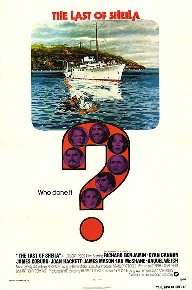A blog formerly known as Bookishness / By Charles Matthews
"Dazzled by so many and such marvelous inventions, the people of Macondo ... became indignant over the living images that the prosperous merchant Bruno Crespi projected in the theater with the lion-head ticket windows, for a character who had died and was buried in one film and for whose misfortune tears had been shed would reappear alive and transformed into an Arab in the next one. The audience, who had paid two cents apiece to share the difficulties of the actors, would not tolerate that outlandish fraud and they broke up the seats. The mayor, at the urging of Bruno Crespi, explained in a proclamation that the cinema was a machine of illusions that did not merit the emotional outbursts of the audience. With that discouraging explanation many ... decided not to return to the movies, considering that they already had too many troubles of their own to weep over the acted-out misfortunes of imaginary beings."--Gabriel García Márquez, One Hundred Years of Solitude
Search This Blog
Wednesday, April 26, 2017
The Last of Sheila (Herbert Ross, 1973)
Actor Anthony Perkins and songwriter Stephen Sondheim moonlighted as screenwriters to create this jeu d'esprit, a murder mystery involving the kind of elaborate games that Perkins and Sondheim and their friends used to play: treasure hunts with ingenious clues. The setup is this: A year earlier, Sheila, the wife of film producer Clifton Green (James Coburn), was killed in a hit-and-run accident. Green invites six people who were at a party the night of her death to spend a week on his yacht, which is named for her. Before they board, he arranges them for a photo under her name on the prow of the yacht. Then he announces that he is going to give each of them an envelope that contains a secret: something that a person would want to conceal about themselves. Each night, they will dock at a different location and will be given a clue that they must follow to discover the secret. If the person who holds the card with the secret on it solves the puzzle, the hunt of the night is over. So, on the first night, the clues lead to the secret: "Shoplifter." And when Philip (James Mason), a washed-up film director who holds that clue, solves it, the game ends. But the next night, the game isn't completed: Green is found murdered during the hunt. Meanwhile, realization dawns in the group that the secrets were their own: Philip wasn't a shoplifter, but the actress named Alice (Raquel Welch) admits that she once lifted a valuable fur coat from a store. And when the secret for the night Green is killed is revealed to be "Homosexual," Tom (Richard Benjamin), a screenwriter, admits that he and Green once had a brief affair. And so it appears that Green was murdered by someone who didn't want their secret to come out. But just when it appears that the murder has been solved, there's another intricate twist. The screenplay is fiendishly clever, and it's well acted: The other players include Dyan Cannon as a high-powered agent, Joan Hackett as Tom's rich heiress wife, and Ian McShane as Alice's manager-husband. Unfortunately, Herbert Ross directs things a little clunkily, although some of the awkwardness may come from the fact that shooting began on the yacht itself, but bad weather held up the shoot and sets eventually had to be constructed on a soundstage. There was also reportedly some conflict among the cast members and the director, centering on Welch. Today, some of the film's attitudes seem a little antique: Homosexuality is no longer such a terrible secret, although at the time Perkins and Sondheim, both of whom were gay, were still closeted. And perhaps not enough is made of the fact that one of the clues outs a character as a former child molester. The resulting film is something like a soufflé that didn't rise, turning out tasty but a little chewy. The best moments belong to, not surprisingly, Cannon, one of those performers who make every film they're in a little better.
